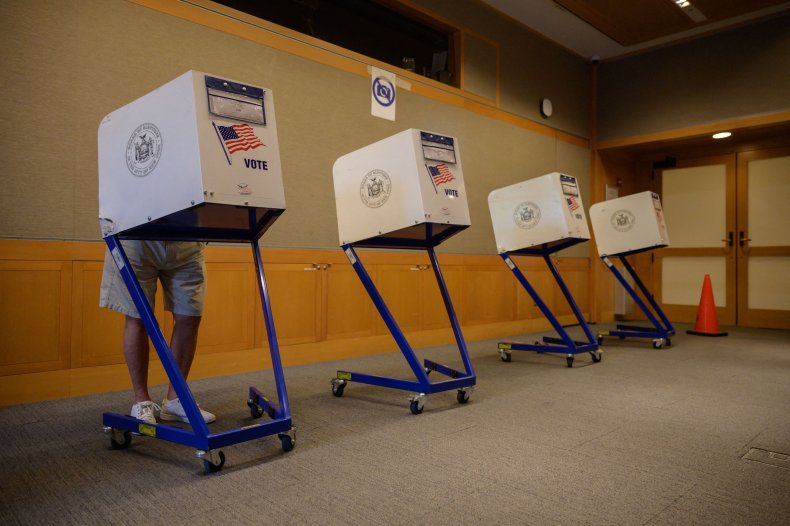The American political system is far from perfect but is generally considered to be better than most all others. Its openness, transparency and level of citizen involvement may be unequaled anywhere else in the world.
Still, some look upon the way America elects its officials as a fundamentally flawed, anti-democratic process prone to cheating. The proponents of major change, once considered to be on the fringes of politics, have moved a lot closer to the center of power in both major parties in the last few years.
There are lots of ideas for reform on the table. One that continues to gather steam originated in the aftermath of the election of 2000, when the country had to wait weeks before it knew which candidate—former vice president Al Gore or then-Texas governor George W. Bush—carried Florida and, with it, a majority in the electoral college.
Everyone knows how it finally turned out. A group of disappointed Democrats, however, believing Gore had been denied victory not by the voters but by Supreme Court Justices loyal to the GOP, began considering ways to ensure it never happened again. They proposed a method for choosing presidential electors based on the results of the national popular vote for president.
The idea is now drawing support from some Republicans as well because, they say, presidential campaigns currently rely so much on the critical “swing states” that each state where the outcome is more or less is predictable is neglected. As a result, millions of potential GOP voters stay home because, as far as choosing a president is concerned, their votes don’t matter much at all.
Every American should believe their vote counts. Under the terms of the proposed National Popular Vote Interstate Compact (NPVIC), the candidate who receives the most votes nationwide would win all the electors from states that are members of the compact. This mechanism, its proponents say, would incentivize both major parties to compete for every vote in every state.
Critics of the idea have called it unconstitutional, arguing it changes the process for choosing a president without a constitutional amendment or congressional approval. Supporters say that’s not so—the compact leaves the Electoral College intact but changes the way states party to it choose their electors. That’s a privilege the Constitution reserves for the state legislatures. Currently, 15 states and the District of Columbia, covering nearly 200 electors combined, have enacted legislation bringing them into the NPVIC, which only goes into effect when enough states with enough electors to determine the outcome of an election—270—sign on.

Regardless of what people say about it, it’s an idea that may someday come to pass. Many Republicans resist the idea because they believe it will give Democrats the opportunity to steal an election through fraud in cities in big states like Illinois, New York and Pennsylvania. Those concerns are blocking the compact from advancing further because the majority of state legislative chambers are currently controlled by the GOP.
That’s not going to last forever. Such things can turn on a dime, like in 1974 when the GOP lost hundreds of seats nationwide thanks to Richard Nixon’s misdeeds. It looks increasingly likely Joe Biden‘s mismanagement of the presidency will produce similarly tremendous losses up and down the ballot for the Democrats this November.
The smart move for anyone who cares about election integrity would be to take up the issue of fraud and potential fraud now. As much as some people seem to believe voter identification laws will do the trick, it’s the issue of the voter rolls and their accuracy that should occupy their time.
The best protection against future fraud, say some election law experts, would be changing the way voter rolls are maintained to keep them clean. States should henceforth require that deceased voters be removed from the rolls no more than 30 days after a certificate of death is registered.
The relevant officials in each state should also have to review county tax rolls to see if the addresses listed on the voter rolls given by people when they register are indeed residential or other permissible addresses as required by state law. Similarly, court clerks should be required to send weekly or monthly reports to election officials identifying people to whom jury summons are undeliverable so they may be struck from the lists.
Finally, we might all be better served if we treated voter registration like we do drivers’ licenses by putting an expiration date on it. Voters, especially those who are put on the rolls automatically because of the federal Motor Voter law, should be required to renew their registration every few years to help maintain the accuracy of the lists.
These reforms are common sense and, if enacted, would do much to reassure a nation rocked now and again by charges of fraud. Elections are too important for their vital elements not to be maintained with the highest degree of scrutiny.